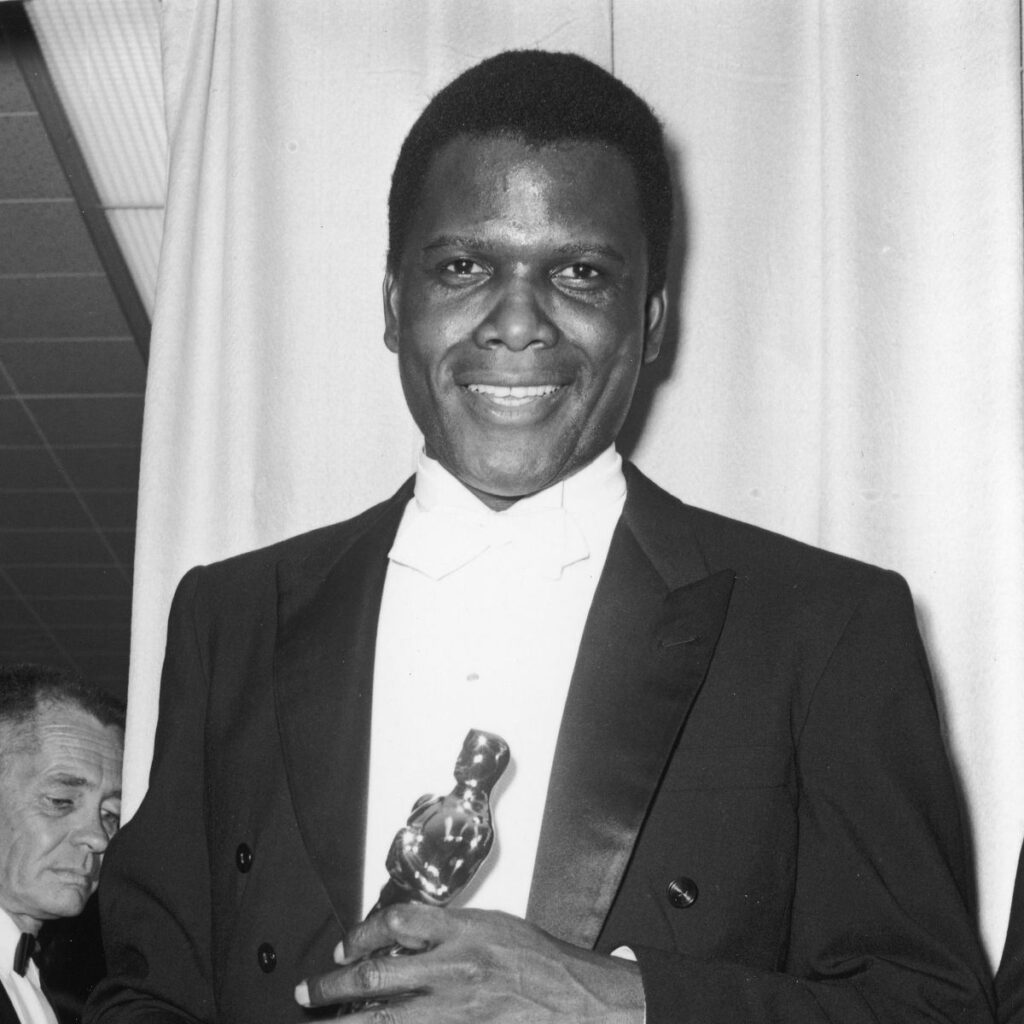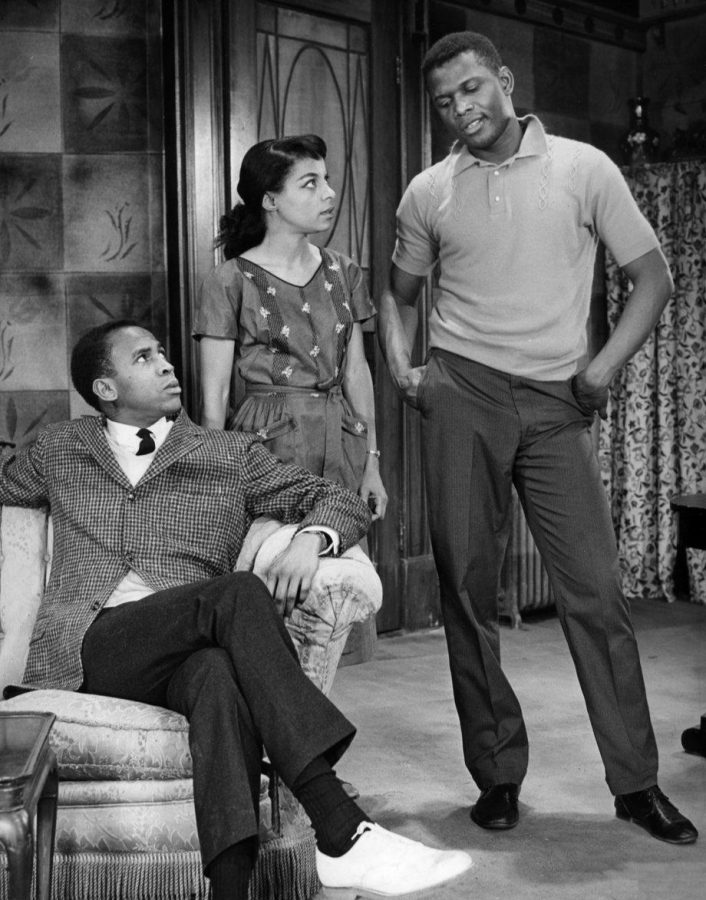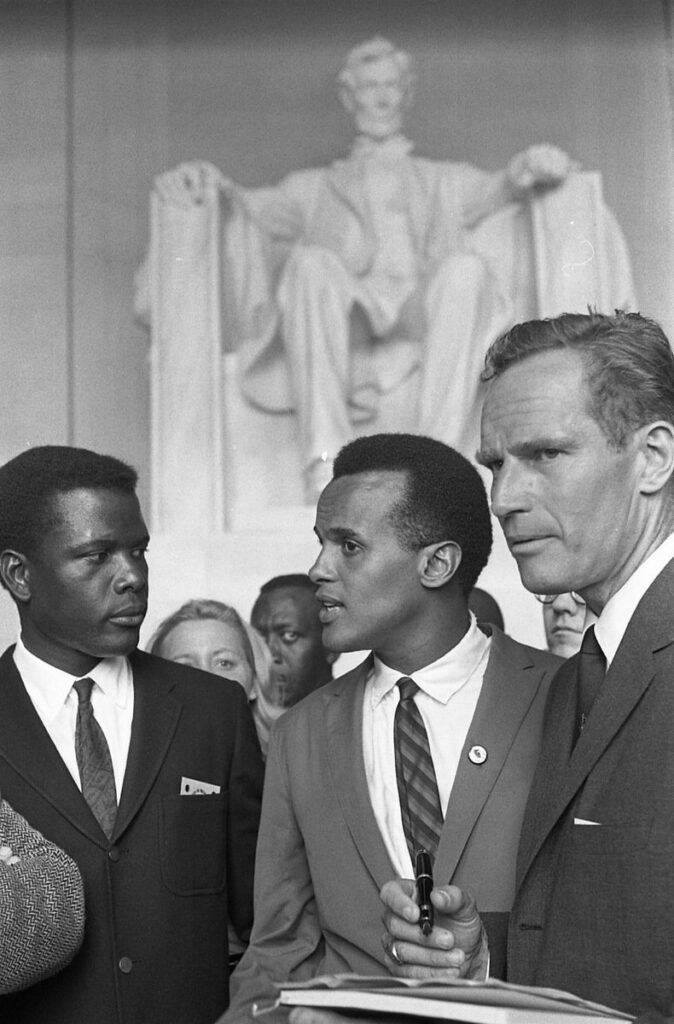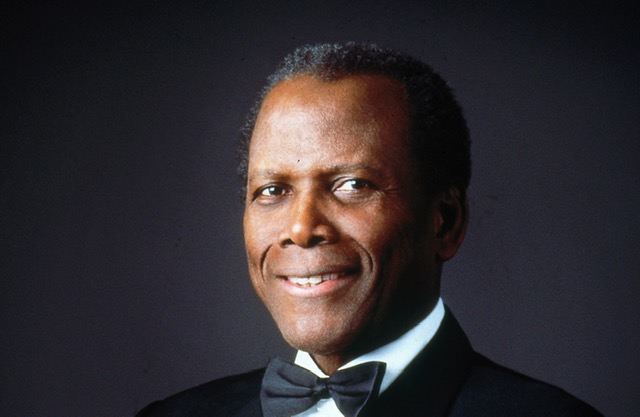On Thursday, January 6th the world of entertainment lost a noble dignitary, the great Sidney Poitier. It was a devastating blow to the industry, one that will be remembered for years on in as this iconic figure left an astounding eminent mark in our history.
As the first Black movie star to be honored with the first Academy Award for Best Actor won by a Black man, Poitier broke the color barrier within the U.S. motion-picture corporation paving the way for actors that followed his God given talent.
Born unexpectedly in Miami, Florida while on business, Sidney was the youngest of seven children to Bahamian parents Evelyn and Reginald James Poitier, farm owners who maintained their land on Cat Island, a district located in central Bahamas.

Securing automatic U.S. citizenship, Poitier was birthed three months premature and was not expected to survive. Prepping for the worst, his father bought a small casket while his mother sought refuge through a palm reader who assured her son would overturn his fate and one day “walk with kings”. His parents remained in Miami until he was nursed to health.
Raised on his native island, Sidney’s family eventually moved to Nassau where he began to ascertain the modernization of basic living essentials and the world of cinema. By age fifteen fearing he was heading towards a spiraling path, his parents sent him to live under his older brother’s household. A year later Sidney moved to New York chasing the dream of becoming an actor, working as a dishwasher to make ends meet.
Landing his first audition with the American Negro Theatre quickly took a downfall as he was unable to comprehend the script while trying to mask his Bahamian accent. The pressures of not being able to read along with being a Black man during the Jim Crow Era were weighing heavy on this driven soul but, an unforeseen act of kindness from a Jewish waiter at his job would be the calling that would ultimately change his life.

During a 2013 interview, Sidney described his emotional encounter with the man responsible for teaching him how to read, “I had a newspaper and he walked over to me and he looked at me and he said what’s new in the paper and I looked up at this man and I said to him, I can’t tell you what’s up in the paper I said because I can’t read very well. He said let me ask you something, would you like me to read with you? I said to him yes, if you’d like and now let me tell ya something every night…every night the place was closed, everyone’s gone and he sat there with me week after week after week. I learned a lot, a lot and then.. things began to happen”.
And so it was, Sidney aspirations of becoming an actor came into existence. Redefining his speech pattern after radio announcer Norman Brokenshire, Poitier was given a leading role on Broadway that lead to an understudy invitation to Broadway’s first All-Black casted play alongside fellow greats Ruby Dee, Ossie Davis, Louis Gossett Jr, Dorothy Dandridge and Harry Belafonte eventually landing roles on the big screen.
A founding member of the “Committee For The Negro In The Arts” in the late 1940’s, Poitier began to bring awareness of class and racial exploitation to the forefront. In 1950, he earned his first starring role in “No Way Out” playing a doctor experiencing racism from a prisoner played by Richard Widmark.

Choosing roles that were dignified, proud and ethical, he starred in numerous renowned features including “Raisin In The Sun” and “Paris Blues” with Paul Newman, Joanne Woodward, Louis Armstrong and Diahann Carroll, a film that dealt with American racism and Paris’s open acceptance of Black people.
1963’s “Lilies of The Field” won Poitier’s first Academy Award for Best Actor but it was 1967’s “In The Heat of The Night” role as detective Virgil Tibbs that undoubtingly initiated the transformation of roles for Black people. Prior to signing up for the production, Sidney requested a major script change from studio execs on a slapping scene, ” I said if he slaps me, I’m going to slap him back. You will put on paper that the studio agrees that the film will be shown no where in the world with me standing there taking the slap. I knew that I would’ve been insulting every Black person in the world”.
His candor and determination to stand up for the injustices of Black people is what shaped him into the extraordinary man he was. Sadly till this day, we continued to fight for inequalities of discrimination with racism and disaffirmation of women’s rights. With initiatives ranging throughout the sports and entertainment industries, one of many valuable lessons Mr. Poitier left us with, portray yourself upright, well-educated, strong of character and refrain from silence.
Sidney Poitier is survived by his wife of forty-six years Joanna Shimkus, his six daughters Beverly, Pamela, Sherri, Gina with ex-wife Juanita Hardy, Anika and Sydney Tamiia with wife Joanna along with eight grandchildren and three great-grandchildren.






